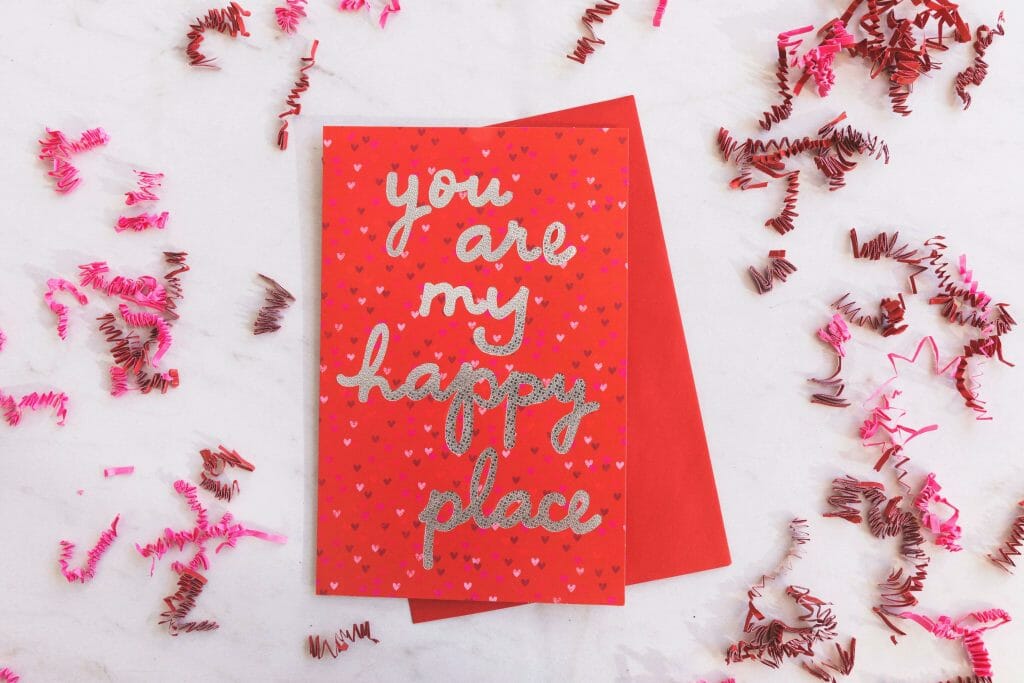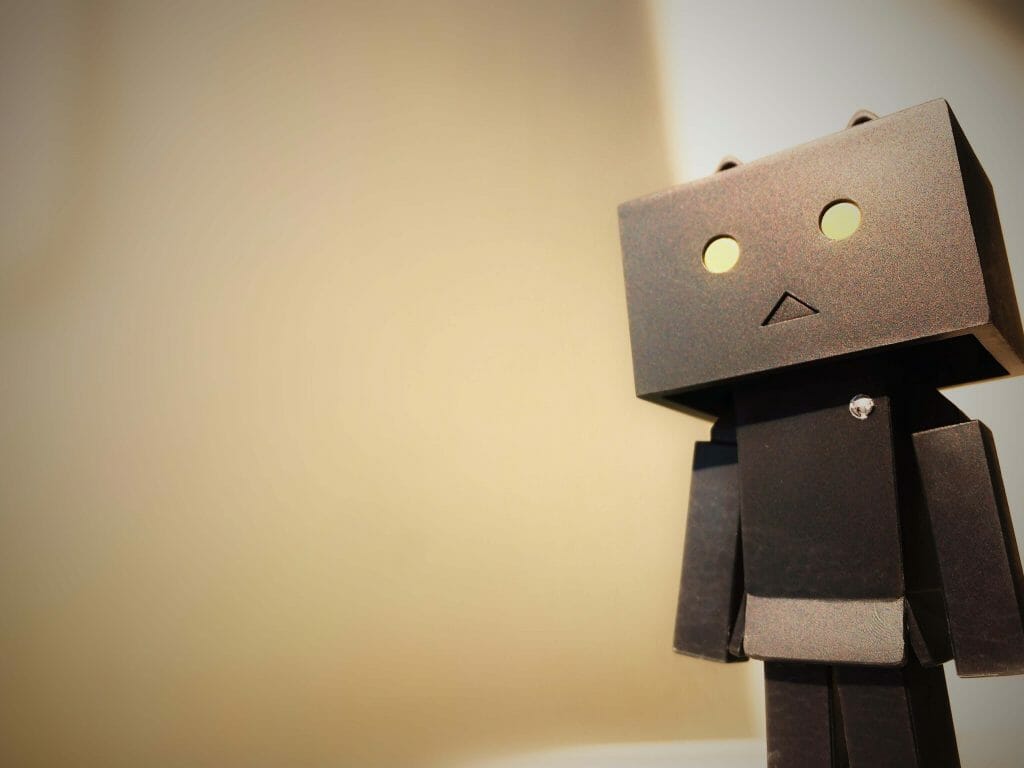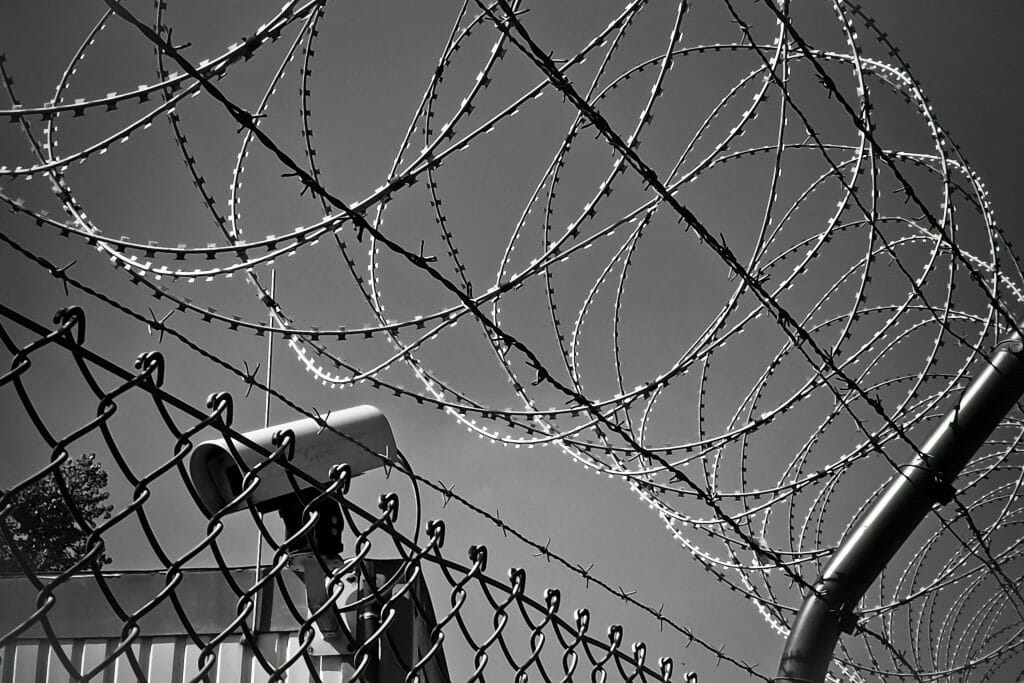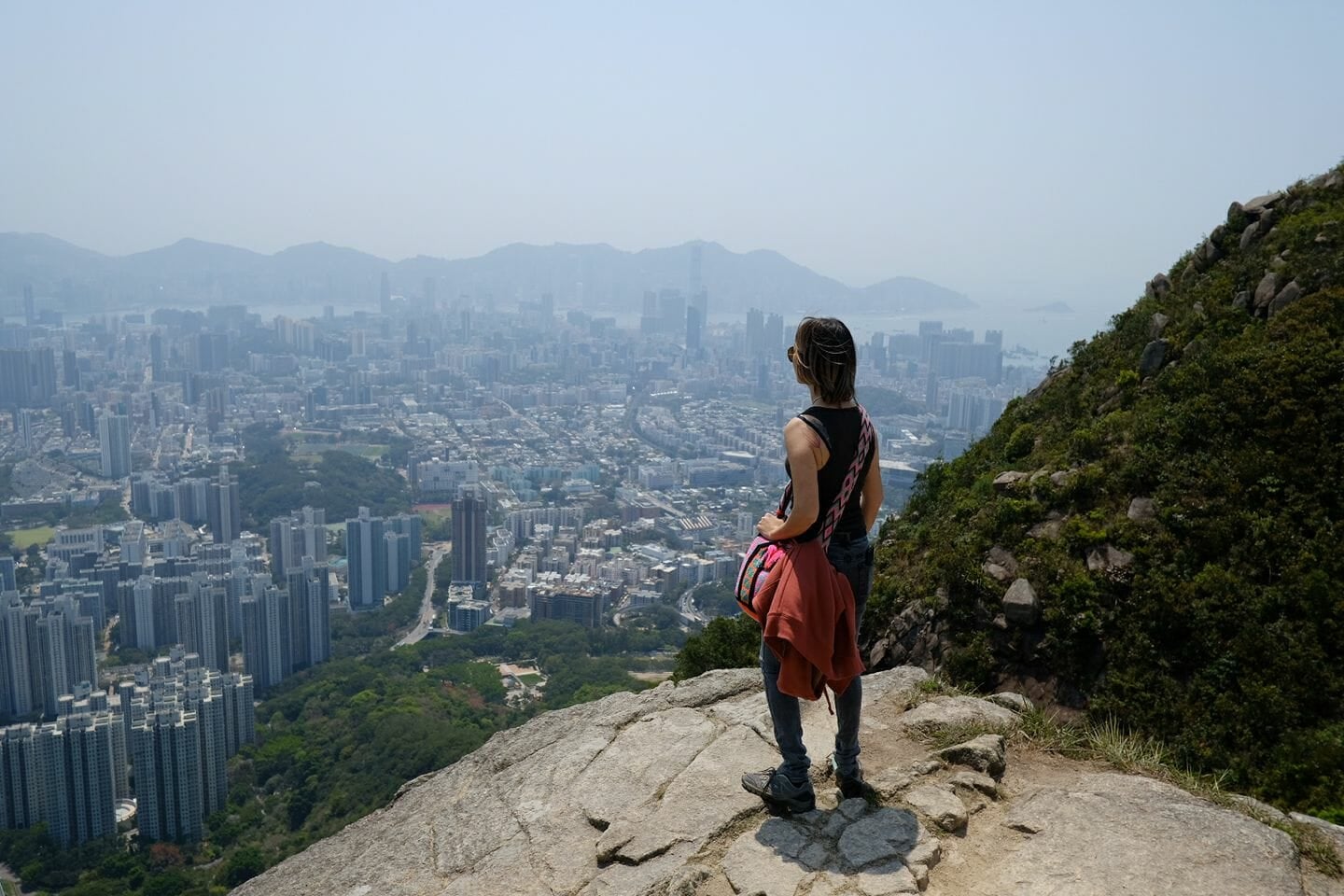You know those people, the ones who post pictures of their laptops by the beach, Piña Colada strategically positioned, Instagram post captioned with some iteration of the humblebrag: “working on the beach today, #hustling hard”?
Ahh yes, these digital nomads. According to Wikipedia, digital nomads are “people who use telecommunications technologies to earn a living and generally conduct their life in a nomadic manner”. They work and live life on their own terms, unbound by geographical barriers.

Well, hey, I also happen to fall under that definition! Although I prefer the term ‘online professional’.
I’ve also never posted a single working-from-the-beach pic for the ‘gram. I most certainly don’t move cities every three months either.
How I got into this lifestyle is fairly clichéd – I met a location-independent entrepreneur and fell in love with him. At the time I was already freelancing anyway, so I eventually made the decision to move with him when he decided he’d had enough of my hometown.
This location-independent lifestyle sounds like freedom – wake up whatever time you want, work on your laptop from anywhere in the world, and make money on your own terms. Pretty ideal, wouldn’t you say?
Well, it’s been over a year since I went into this lifestyle, and let’s be honest here – life hasn’t been all Piña Coladas and Bali beaches.
After the initial exhilaration, I lost some of my rose-tinted views on the lifestyle – here are some of the realities I began noticing:
You need to have money and/or a job
Wanna sign up for the nomad life?
Your finances will be the biggest issue to consider before taking the plunge. You’ll either need to have a (location-independent) steady job, or at least some reliable way to fund life and travels for at least the next six months up to a year.

International travel is getting more affordable but moving around all the time isn’t cheap – and plenty of unexpected costs will happen.
Just last month, we had an issue with our Thai tourist visa. It was voided without any explanation while we were in Saigon, and we ended up staying there longer than anticipated.
We decided to apply for an education visa, which cost 2,000 baht (RM267.63). That was on top of the 20,000 baht (RM2,676.40) we needed to pay to enrol for classes.
Between that, accommodation, and new outbound tickets, the costs really piled up. Imagine not having enough money to cover contingencies like this! The lifestyle would quickly become unsustainable.
Romantic relationships can be challenging
One of the topics that often comes up in nomad forums is how dating can be difficult for those living the location-independent lifestyle.
A life without a long-term set location is often not compatible with normal dating patterns. Getting into a serious relationship can mean giving up your freedom and the nomadic way of life. Not many will be willing to make this trade-off.

Many nomads seem resigned to short-term relationships; some don’t even bother with them. Many just live by the motto of “Seize the day!” and make do with whatever they can get. They move in with Tinder dates and then move on again with the next relocation.
My partner stayed for a year and a half in my hometown instead of the original two weeks he’d planned. Towards the end of that year and a half, he was itching to leave. After some discussion and planning, he took me along with him.
However, that might not be a possible outcome for many nomads dating a location-dependent partner. My job was very flexible to begin with, but what if I were a lawyer or a doctor and had an employment contract? Or what if I had been a business owner that had to be physically present to ensure my business’ success?
Many nomads would prioritise freedom and autonomy over pursuing a relationship that may or may not work out in the long run.
Lastly, the lifestyle can mean unstable foundations to build a relationship on – sometimes all that travel exacerbates issues and contributes to conflict.
Having a daily routine matters – a lot
This is such a paradox, but having a daily routine suddenly matters a lot more, even if the nomadic life seems flexible.
The reason for that is a sense of purpose, which most people need to remain sane. A bit of routine and a solid plan in place keeps us from feeling lost and aimless.

Trust me, my mornings are as mundane as yours.
When I first began freelancing years ago, ironically, I started missing my 9-to-5 routine. Not having one made me feel sluggish and unproductive. Eventually, creating plans for the day and for the week helped a lot with managing my psychological state.
This is true even right now – we often quickly re-establish our routines of work and gym, no matter where we are in the world. This sounds like a terrible waste of a trip, but remember this – when we travel, its often not a purely recreational holiday away from responsibilities.
For us, it’s just the same as any other workday. It’s just that our location can be variable, and work deadlines need to be met regardless of where we are.
You’ll have to break up with many things
This lifestyle forces you to end many of the emotional dependencies you might take for granted.
You’ll have to say goodbye to friends, family, your pet dog, your mate down at the pub you have drinks with every Friday, your trusted hairstylist, your favourite coffee joint with the phenomenal flat white… You get the picture.

And on the topic of dependents, you’ll have to find someone to care for your pet(s) when you leave them behind. This can be pretty heart-wrenching.
If you have people depending on you – an aged relative, perhaps, you’ll have to find a way to make sure that they’re well taken-cared of in your absence.
If you’re unable to leave all these things behind, then the nomadic life is not for you.
Transient relationships become a recurring theme
Fleeting relationships are part of the location-independent life. While moving around, you do meet a lot of people and often make plenty of new friends.
However, it can also be hard to cultivate deep and meaningful friendships, because you know you might eventually leave.
Often, the friends that you do end up forming a closer relationship with are part of the digital nomad communities, because of the lifestyle you have in common.

Sometimes it can get lonely – after the honeymoon period wore off, I felt isolated in Thailand. The language barrier and cultural difference didn’t make things any easier, and I missed my close friends back home.
I won’t lie – I cried a lot in the first three months because I felt so disconnected.
You never fully unplug from work
Digital nomads are called “online professionals”, “online freelancers” and “online entrepreneurs” for a reason – our source of income depends on having a job that is facilitated by an internet connection.
The lines between work and life blur when you’re constantly connected. It’s hard to shut off, and that’s part of the reason why travel no longer feels like a holiday to us.

We’re ALWAYS working as we go – even during layovers at the airport or on a long flight. Working from cafes stopped feeling “cool” awhile ago.
This constant reliance on connectivity also means that it becomes difficult to travel to destinations with poor connection. We experience a weird sort of separation anxiety from work.
It’s probably unhealthy, but it’s difficult to take a break. My partner and I have yet to take a “real” holiday without our laptops in almost two years.
We’ve even started to enforce the occasional no-phone weekends just to give ourselves a “tech detox”, in order to preserve our own sanity.
Your perspective on worldly possessions becomes more basic
How you feel about your personal possessions will change when you’re constantly on the move.
Just a couple of months in, I stopped making superfluous purchases that I couldn’t take along with me. I often sell or give away any extra items I acquire, just because it’s not feasible to keep them.
Most of the things essential to my lifestyle are portable – my MacBook Air, my iPad, my phone, my Kindle and my notebooks. Almost everything else – well, no matter how much I love them, I have to be ready to give them up at a moment’s notice.
I never knew how much I would miss buying things for my own home: objects to decorate my space or even nice kitchenware.

The knowledge that I will eventually leave makes all items feel like a foolish buy. I know that I won’t be able to take everything with me, so it seems like wasteful paying for new things that will only serve me so long.
I guess this is both good and bad – minimalism becomes a way of life, and there’s less mindless consumerism. I do appreciate that it discourages earning money to buy stuff I don’t really need.
However, it also does make me feel less invested in my living space. Buying things for my home feels nice because I have a little “nest” that I put time and money in to personalise.
Not being able to do so because I’ll eventually move on is a constant reminder that I don’t have a permanent home.
You learn to embrace practicality over fashion
Backpacks don’t really have a reputation for being fashionable, although fashions trends are beginning to embrace them.
I’ve never been a huge fan of backpacks – until I became a remote worker. Now my pack is probably my most essential belonging. It’s comfortable enough to carry for long distances, looks nice for both formal and casual functions, and has heaps of compartments to carry all my stuff.
My current backpack is a God-send – the large Dagne Dover Dakota in Dune.

Image credit: dagnedover. Com
This might sound dramatic but getting the right backpack has been life-changing.
I have mild scoliosis, and a well-designed bag helps to drastically reduce strain on my back, especially when travelling over many kilometres daily.
From navigating the train systems of Bangkok, to rattling down small streets on a motorbike in Vietnam, to hopping on and off rickety sampans en route to Gili Air, my pack has seen a lot of mileage with me – and it contains the absolute vitals for this lifestyle.
The same sensibility applies to my wardrobe – practicality and comfort often trump fashion, although I do have one or two nice dresses for events and occasions. My sexy four-inch leather Saffiano pumps have taken permanent residence in my parents’ abode – they just aren’t very practical to lug across borders!
Everyone does the nomad life differently
What most people don’t realise is that the nomadic life means varying things to different people. How we all structure the lifestyle is very individualistic.
Some people are fine with being truly nomadic – constantly on the move and not staying on in one place for more than a few weeks or even a few days.
I have a friend who crosses international borders every one to two weeks. Another friend alternates between three months in Thailand and another three months in the States.

My partner and I prefer to keep one city as our “home base”, with the plan of spending at least 6-8 months a year there. We use the remaining time travelling to see other places. If we find a place we like, we note it down as the next potential base-of-operations.
Both of us are fitness-obsessed and need our routines for work. Moving around too much is too disruptive on both our workouts and productivity.
Also, some people move around on their own. Some, like us, travel with a partner. We’ve met nomads who move around with family in tow – we personally know a Dutchman who travels with his wife and their two young children.
And not every one of us wants to do this forever. There are the nomads who eventually slow down, or even settle into one place.
There really isn’t any right or wrong way to do this – it all depends on personal preference and what works best for the individual.
Mental health can be exacerbated by this lifestyle
The instability of being a digital expat can be disruptive, especially if you have a mental health issue.
Personally, the first few months were bad for my mental state. I was deeply depressed and constantly anxious because the isolation and the change in routine was difficult to adapt to.
In fact, being location-independent is one of the reasons why I’m currently back on my medication for bipolar disorder.
For a while, the combination of my depression and anxiety negatively affected my relationship and productivity. I was unaware about it for months until one morning I woke up and became aware of how bleak and grey my world was, despite “living the dream” in a dynamic and vibrant city.
I knew I had to seek help then, in order to sustain the lifestyle.
Visa issues become a part of life
Digital nomads aren’t welcome in many countries, because we’re essentially non-tax-paying residents.

We aren’t tourists because we still work while on our travels, and even though many of us wouldn’t mind paying tax, there are just no options to apply to be a resident.
In most countries, it’s just impossible to apply for long-term visas without a local job or registering a company locally.
However, even though most of us don’t have jobs with local companies, we do spend our money in the country on goods and services. A resident who spends but doesn’t cost the country makes a lot of sense for an economy.
Things are changing, and Estonia has become the first country to introduce a Digital Nomad Visa.
For the rest of the world, the visa is still a limitation on how long nomads can stay in the country. Of course, there are many ways around it – however, all options will cost some amount of money.
This is how I came to be enrolled in a Thai language course – we registered ourselves at a language school and applied for an Education Visa. We did this when we no longer felt “safe” to enter the country on a Tourist Visa.
Even then, there’s no guarantee that we’re allowed to stay if we don’t pick up the language well enough. The immigration officers will test our command of the language upon re-entry.
I’m not sure how they’ll test those doing an Education Visa for Muay Thai though!
The lifestyle changes you
This location-independent lifestyle will change you.
For me, international travel has lost some of its novelty – every time we land in a new city, we immediately set up our routines for work and life. It rarely feels like a “holiday” anymore, no matter how exotic the location may be.

I used to love buying things to treat myself. Now, my views on material possessions skew towards being rather minimal. When I see something I want, I always end up thinking about if and how I will take it with me when I move eventually.
Work has become deeply ingrained with the rest of my life. Also, I’ve also learnt to be a lot more self-sufficient and flexible when faced with culture shock and unexpected issues.
Some of the more memorable incidences have been
- Had a visa voided in Saigon
- Got stranded on Basco Island by Typhoon Rosita
- Cashless in El Nido, where all of the ATM machines ran out of money
- Climbed Lion Rock for the ‘gram – this is one of the rare occasions I needed to add one to the highlight reel.
The biggest change is my evolving worldview. Coming from a small and relatively conservative city, going back to visit has presented instances of reverse culture shock – I no longer feel like I’m able to assimilate back into life in my own hometown.
Some parts of my past life there has been excised from who I am today, and I’m currently struggling with what the concept of what “home” really means to me right now.

Photo credit: the author
“Home is where the heart is” is pretty clichéd, but perhaps there’s a grain of truth in that. If that’s true, I guess I’ve become polyamorous in the way I feel about people and places – investing little bits of myself in them and then moving on again.
Being a digital nomad seems like a desirable way of life for many millennials, and I concede that it is an immensely liberating one that will change your perspective of life in profound ways.
However, it isn’t for everyone, and it does come with its sacrifices and trade-offs.
I’m not sure if my partner and I will keep doing this forever, but as we’re relatively young and wanderlust is still strong in us, “settling down” isn’t on the cards any time soon.
For more articles about working online, read How I Quit My Five-Figure Salary Job to Become a Travel Writer, and The Newbie’s Guide to Starting an Online Business Platform – Tips from the Founders of IRL.
More from Real People
‘A RM100 fee cost a company 5 years of revenue’ shares M’sian
This story is about a Malaysian who learned that bureaucracy can be defeated simply by not arguing with it.A billing …
‘I quiet-quit, upskilled, and tripled my salary,’ shares M’sian engineer
This story is about a Malaysian who learned that loyalty without leverage leads nowhere in the corporate world.After years of …
‘I did everything right, and it still wasn’t enough’ shares M’sian graduate
This story is about a Malaysian graduate navigating big dreams in a job market where a degree no longer guarantees …














